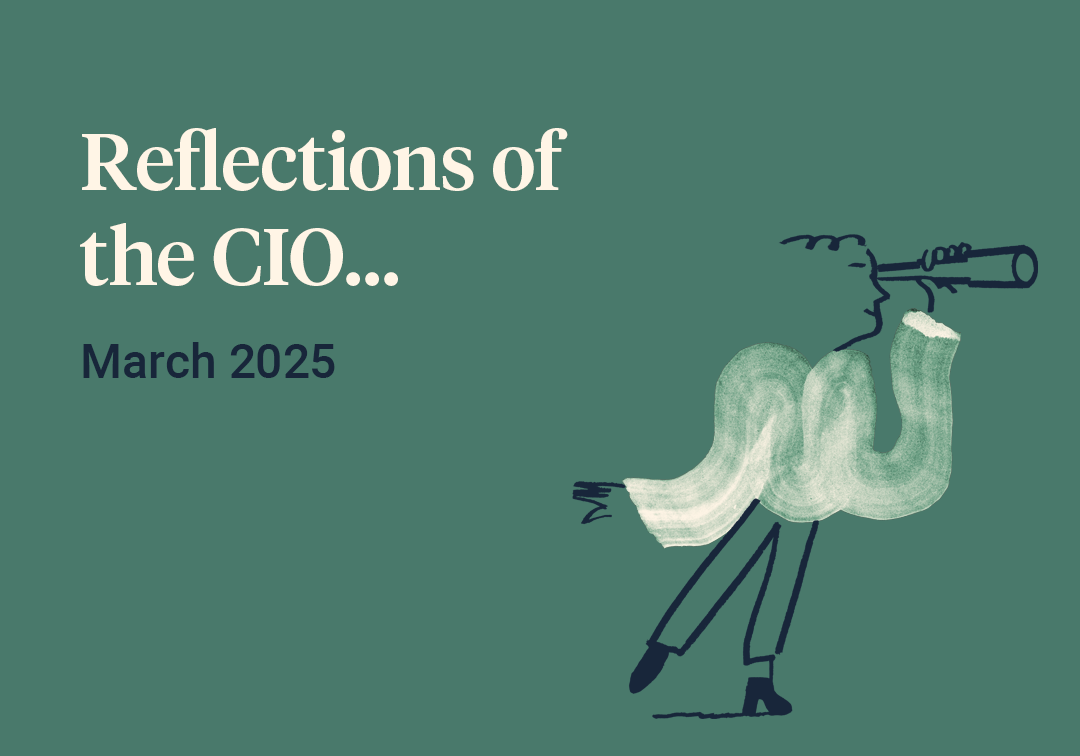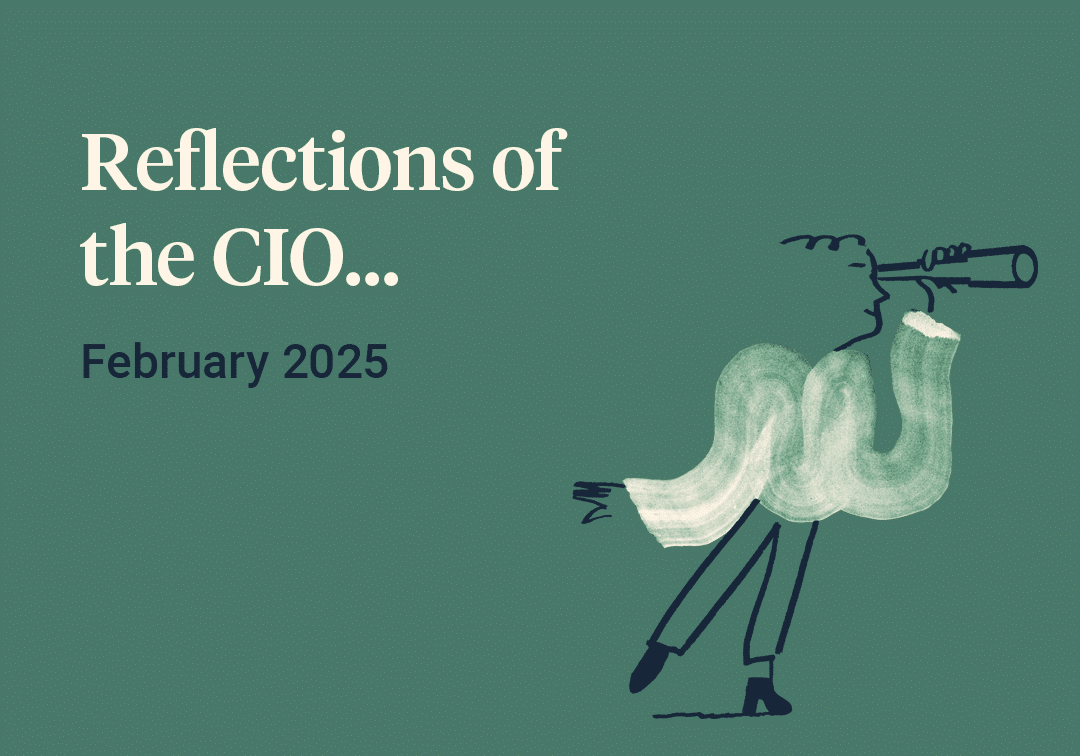October was another difficult month for many reasons. In previous updates over the last two years, we have been outlining the long and protracted journey of global markets to adjust to an environment of higher interest rates and higher inflation. Given that this process is being undertaken at a point when the financial system has never been so indebted, it was never likely to be a smooth journey, and so it has proved.
The last month was another case of the bond market starting off optimistically, believing that inflation and interest rates had both peaked, before reality intruded and dashed those nascent hopes. Specifically, a strong US economy and a marginally disappointing inflation report combined to force US bond prices lower, dragging most other global asset classes down with them. In technical terms, the real (or inflation adjusted), yield on US government debt climbed sharply, to levels normally associated with recession. A recession is clearly not what is happening now, but the fear is that the longer financial conditions remain as tight as they currently are, the greater the chances of a slump occurring further down the line. This risk is a feature of not only of the US economy, but also of the UK and European economies too. There are also common concerns over the state of government balance sheets, given an increasingly unsustainable rate of overall spending.
In addition to these familiar worries, we also had the horror of the terrorist attacks in Israel. It is difficult to add anything of use when confronted with the brutality of the events of October 7th, even in an era where they are depressingly familiar. Financial markets are usually coldly indifferent to human cruelty, unless it runs the risk of spreading into something wider and all consuming. The oil price remains the key instrument through which the risks of this conflict are transmitted beyond its borders, and, so far, there is little movement one way or the other. The energy market, on the face of it, has made the cold calculation that it is in no-one’s interest for the war to spread and therefore, it will remain a contained ‘regional conflict’. This has echoes of the situation after the initial shock of the Ukrainian invasion and although this is a plausible position for now, we don’t wholly subscribe to it and will be keeping in place the existing protections we have, to manage the associated risk.
Do you need help managing your investments?
Our team can recommend an investment strategy to meet your financial objectives and give you peace of mind that your investments are in good hands. Get in touch to discuss how we can help you.

There are also, fortunately, some important positive signals and events happening, which were not drowned out entirely by the events of October. The inflation picture is steadily improving, whilst the global economy has simultaneously managed to consistently surprise with its resilience. Central Banks have taken the opportunity to signal that the peak in interest rates has now in all likelihood passed, and although they also say it is too early to think of interest rate cuts, markets may think otherwise and drive prices up in anticipation. China is also steadily and seriously upping its intervention in its economy to stabilize sentiment and drive growth. Prices of some assets, particularly in the bond market post its selloff, are now unambiguously attractive and offer substantial upside for the risks that come with owning them. Sentiment is low and equity valuations are lower. There are several markets or parts of markets with obvious signs of capitulation (UK equities for example or smaller companies globally), which are increasingly interesting for portfolios such as ours with ‘risk budget’ to spend. Other assets – such as gold or options based strategies – thrive in times of volatility, offering up a set of investments that deliver positive returns whilst more familiar assets are struggling.
Whilst it would be still too early to call the end of the last two years of turbulence, it is also fair in our minds to say that the worst of the adjustment to the new investment world is likely behind us. The flip side of any increase in risk or volatility was, and still is, an increase in opportunities. We think that is the current situation and we would expect to be leaning into the current volatility, looking to exploit the steadily growing set of longer term opportunities which are now presenting themselves across the board. We hope to expand on this point as we head into the end of another fast moving and extraordinary year.
Do you need help managing your investments?
Our team can recommend an investment strategy to meet your financial objectives and give you peace of mind that your investments are in good hands. Get in touch to discuss how we can help you.

Article sources
Editorial policy
All authors have considerable industry expertise and specific knowledge on any given topic. All pieces are reviewed by an additional qualified financial specialist to ensure objectivity and accuracy to the best of our ability. All reviewer’s qualifications are from leading industry bodies. Where possible we use primary sources to support our work. These can include white papers, government sources and data, original reports and interviews or articles from other industry experts. We also reference research from other reputable financial planning and investment management firms where appropriate.
The views expressed in this article are those of the Saltus Asset Management team. These typically relate to the core Saltus portfolios. We aim to implement our views across all Saltus strategies, but we must work within each portfolio’s specific objectives and restrictions. This means our views can be implemented more comprehensively in some mandates than others. If your funds are not within a Saltus portfolio and you would like more information, please get in touch with your adviser. Saltus Asset Management is a trading name of Saltus Partners LLP which is authorised and regulated by the Financial Conduct Authority. Information is correct to the best of our understanding as at the date of publication. Nothing within this content is intended as, or can be relied upon, as financial advice. Capital is at risk. You may get back less than you invested. Tax rules may change and the value of tax reliefs depends on your individual circumstances.
Related blog posts
About Saltus?
Find out more about our award-winning wealth management services…
Winner
Best Wealth Manager
Winner
Investment Performance: Cautious Portfolios
Winner
Top 100 Fund Selectors 2024
Winner
Best Places to Work 2024
£8bn+
assets under advice
20
years working with clients
350+
employees
97%
client retention rate


